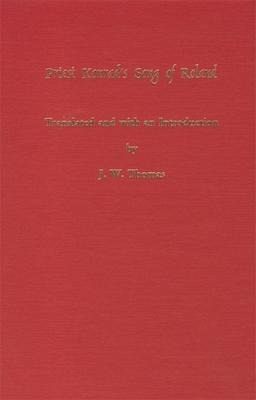Nicht lieferbar

Priest Konrad's Song of Roland
Versandkostenfrei!
Nicht lieferbar
English text of 11c German translation of the French Chanson de Roland. The Rolandslied is a Middle High German translation of the French Chanson de Roland, dating from around 1170. Although faithful to the events of the original, its treatment of style is very free, and it is nearly twice as long. The author identifies himself in the earliest German version as 'Priest Konrad', and probably lived in the area of Regensburg; however, there is no more precise information, despite considerable research into the origins of this important literary work, which only exists in fragmentary manuscripts. ...
English text of 11c German translation of the French Chanson de Roland. The Rolandslied is a Middle High German translation of the French Chanson de Roland, dating from around 1170. Although faithful to the events of the original, its treatment of style is very free, and it is nearly twice as long. The author identifies himself in the earliest German version as 'Priest Konrad', and probably lived in the area of Regensburg; however, there is no more precise information, despite considerable research into the origins of this important literary work, which only exists in fragmentary manuscripts. Professor Thomas's modern English translation reproduces the vigorous and spirited tone of the original; in addition, he provides a detailed and up-to-date analysis of the epic, taking into consideration all the relevant recent research into the work.



